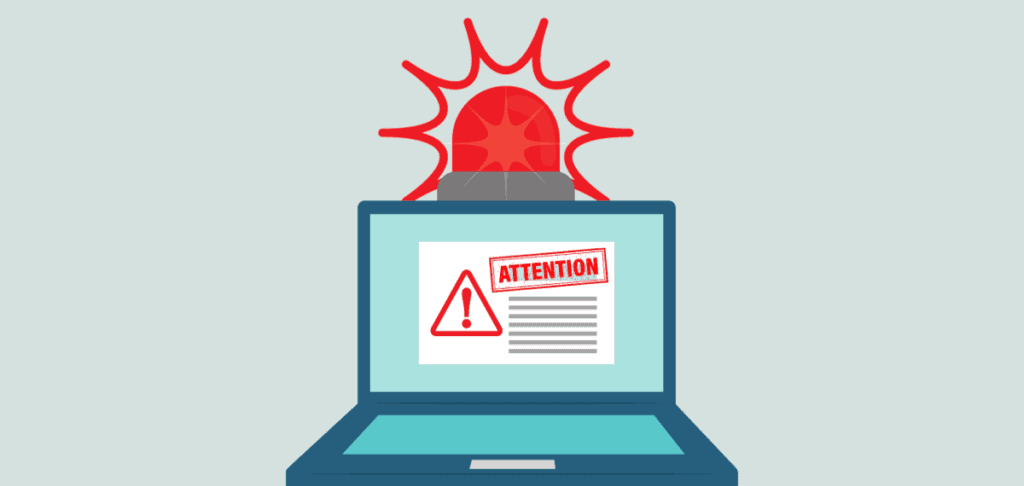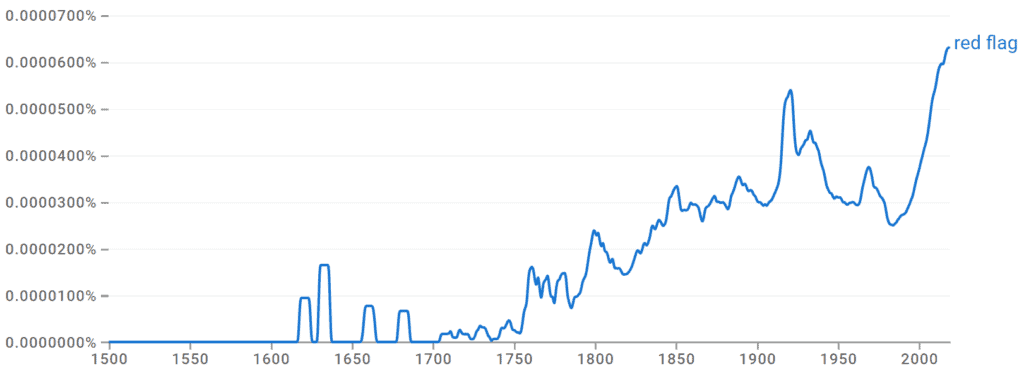A red flag means a warning or indication of potential dangers or problems. Imagine you’re about to buy something online, but several reviews mention the product falling apart within a week. That’s your red flag waving furiously! This idiom comes from a more literal origin: actual red-colored flags that are used to warn others.
An idiom is a phrase or expression whose meaning cannot be understood from the ordinary meanings of its individual words. They’re important because they make language come alive with metaphors anyone can understand.
But how can you use it in a sentence, and are you sure you’re using it correctly? I’ll detail this idiom’s meaning and origin story, plus share some examples of how to use it in daily conversation.
Should the Idiom ‘Red Flag’ Be Hyphenated?
No! When used in its idiomatic sense, red flag doesn’t normally require a hyphen. But if you’re using it adjectivally, as in red-flag warning, you’d use the hyphen to link the two words before a noun.
The Meaning of the Red Flag Expression
The term red flag is metaphorical when used as an idiom. It symbolizes a signal of caution or a warning sign indicating that something might be amiss. Whether it’s in relationships, finance, or health, spotting a red flag suggests that you should be wary.
It’s become popular slang these days, more so towards people. When there are red flags like being quick to anger or still living with their parents, it’s best to steer clear.
Similar Terms We Use
Yep, that’s right. There are other terms we use to relate people to flags.
- Green flag: This means the person or situation is good, safe, or a great choice. “Her green flags are that she loves dogs and pizza and is kind to everyone she meets.”
- Beige flag: This one is newer and is used to point out qualities that make a person or situation boring. “My dad’s beige flag is that his idea of a family vacation is going to the insectarium.”
Red Flag Origin and Etymology
The use of the term red flag as a warning traces back to the 18th century. Red flags were historically used as signals during wars or battles to indicate danger or the need to halt. If you saw a ship flying a red flag, it meant no quarter, aka no mercy. For railways, a red flag indicated the need for a train to stop.
Basically, it’s always been a waving warning, and as time went on, the phrase evolved metaphorically to refer to any cause for concern.
Synonyms for Red Flag
- Warning sign
- Alarm bell
- Caution sign
- Indicator
- Omen
Red Flag Idiom Examples in a Sentence
- Her reluctance to discuss her past was a red flag for Tom.
- If a job posting doesn’t list the salary they’re offering, I take it as an immediate red flag.
- During the checkup, my grandmother’s sudden weight loss raised a red flag for the doctor.
- I noticed several red flags in the publishing contract and decided to consult my lawyer.
- Repeatedly missing the deadlines was a clear red flag about Karen’s commitment.
- The company’s fluctuating stocks were a red flag for potentially interested investors.
- “Don’t you think his aggressive behavior is a red flag?” she whispered to her friend.
- If my dog doesn’t like you, it’s a red flag for me.
- The book had great reviews, but the author’s dubious credentials were a red flag.
- Experiencing persistent headaches? That’s a red flag you shouldn’t ignore.
Bad Grammar Is a Red Flag
The “red flag” idiom is probably one that’s here to stay as long as we’re still using actual red flags to show signs of caution or warnings. It’s simple, straightforward, and fairly universal. Learn about more fun phrases like this one right on our site!
Want to know more idioms? Check out some others we covered:



